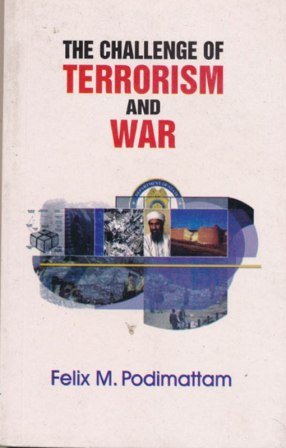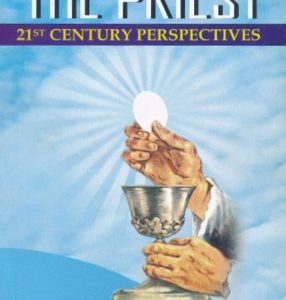Description
The Challenge of Terrorism and War
Ours is a period in history where the problem of terrorism has come to occupy the center stage of our concerns. Fr. Podimattam’s book is a much-needed Christian approach to this topic. Faith comes to our aid at these times when words seem to fail. Christ’s word is the only one that can give a response to the questions which trouble our spirit.
Discussing first the inhumanity of terrorism, the author elaborates the ethics of violent resistance movements. “Global terrorism is an aberration; and it needs to be countered as effectively as possible. But how is this to be done at all, unless we are also willing to heed the message that cries out through every instance of terrorism? It is laughably naive to assume that by taking out terrorist camps and facilities, the world will be made a safer place to live in. Nothing, however, is farther from the truth. A far more useful thing to do is to address the factors that breed terrorism, especially the hurt and humiliation that are the byproducts of a world order based on brutal power and the double standards that go with it.”
The related topic of the just war is treated next, with the present teaching of the Church about it. Arguments against the just war follow, with a chapter on the morality of conscientious objection.
In the following part, the very modern concerns of disarmament and the quest for peace are dealt with.
He concludes with valuable practical proposals to remove violence from our lives. “I can contribute my mite, not because I will be a hero but because I am another Christ”.
Felix Podimattam OFM Cap. is professor of moral theology at St. Francis Theological College, Kottayam, Kerala. He received his Doctor of Theology degree from the Alphonsian Academy, Rome and wrote his dissertation under the direction of Bernard Haring. He also has an M.A. in Political Science from the Mysore University and an M.A. in Systematic Theology from the Gregorian University, Rome, besides postdoctoral studies in Washington, DC, U.S.A. He has authored more than 45 books on contemporary moral theology and spiritual theology and contributed articles to various theological journals in India and abroad. He belongs to the Association of Moral Theologians of India, as whose President he served for eight years.
CONTENTS
INTRODUCTION
PART ONE: ETHICAL ASPECTS OF TERRORISM
CHAPTER ONE: THE INHUMANITY OF TERRORISM CHAPTER TWO: THE ETHICS OF VIOLENT RESISTANCE MOVEMENTS
PART TWO: MORAL ASPECTS OF WAR CHAPTER THREE: JUST WAR THEORY
3.1. A General Overview Of Just War Theory
3.1.1. Background of Just War Theory
3.1.2. The Religious Sources of Just War Theory
3.1.3. Secular Sources of Just War Theory
3.2. Generally Recognized Principles of Just War Theory
3.3. Arguments for a Just War
3.3.1. Support from the Bible
3.3.2. Support from th^ Official Teaching of the Church
3.3.3. Support from Reason
3.4. Arguments against a Just War
3.4.1. Pacifism
3.4.2. Particular Situation or Character of Modem Warfare
3.4.3. Critique of Traditional Theology of War
CHAPTER FOUR MORALHY OF NUCLEAR DETERRENCE
4.1. The Spectrum of Moral Evaluations
4.2. Official Approach of the Church.
CHAPTER FIVE: MORALITY OF ETHNIC CONFLICTS
CHAPTER SIX: MORALITY OF HUMANITARIAN MILITARY INTERVENTION
CHAPTER SEVEN: MORALITY OF CONSCIENTIOUS OBJECTION
PART THREE: PASTORAL ASPECTS OF WAR CHAPTER EIGHT: DISARMAMENT CHAPTER NINE: QUEST FOR PEACE
CHAPTER TEN: SOME OTHER ISSUES
10.1. Media and War
10.2. Women and Children and War
CONCLUSION
BIBLIOGRAPHY




Reviews
There are no reviews yet.